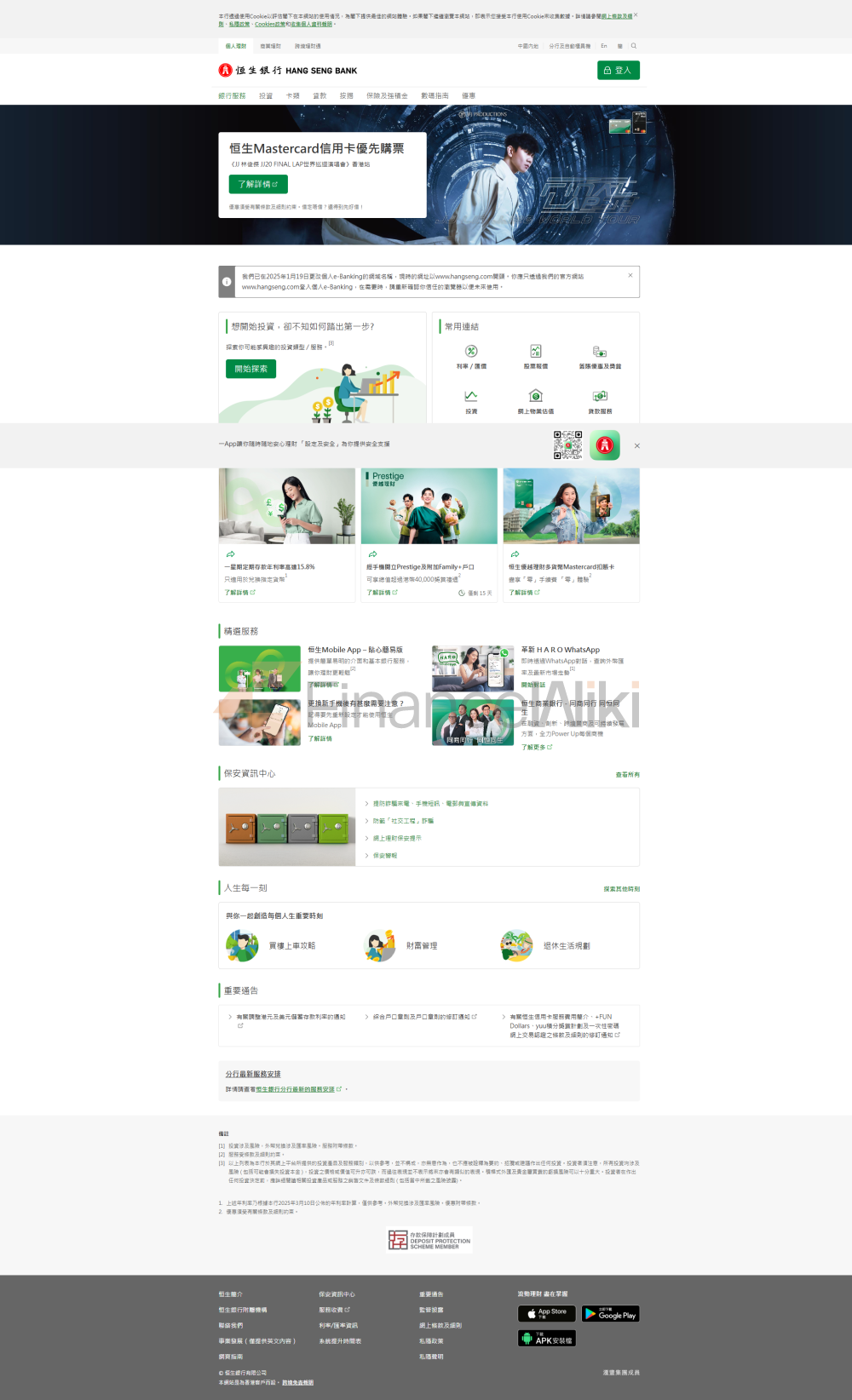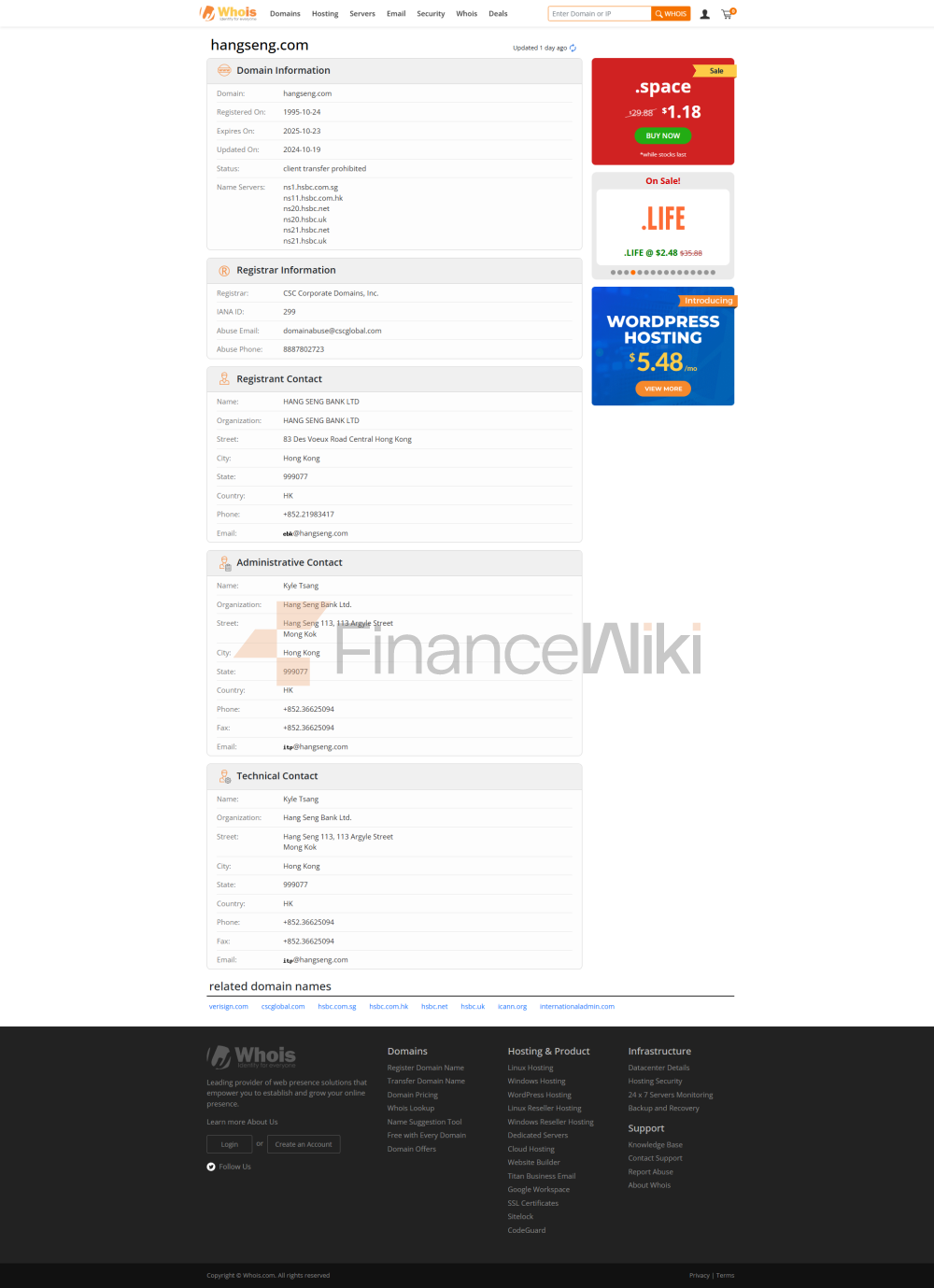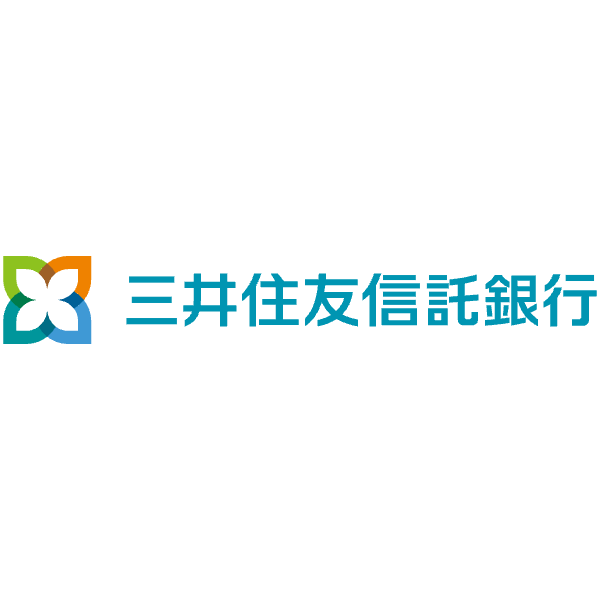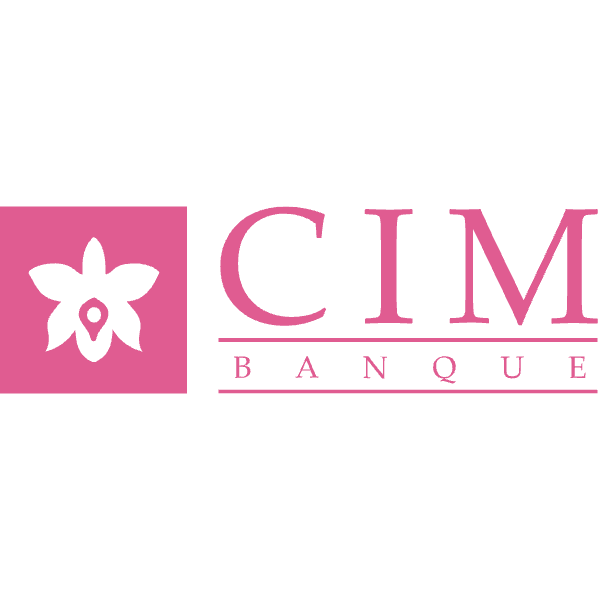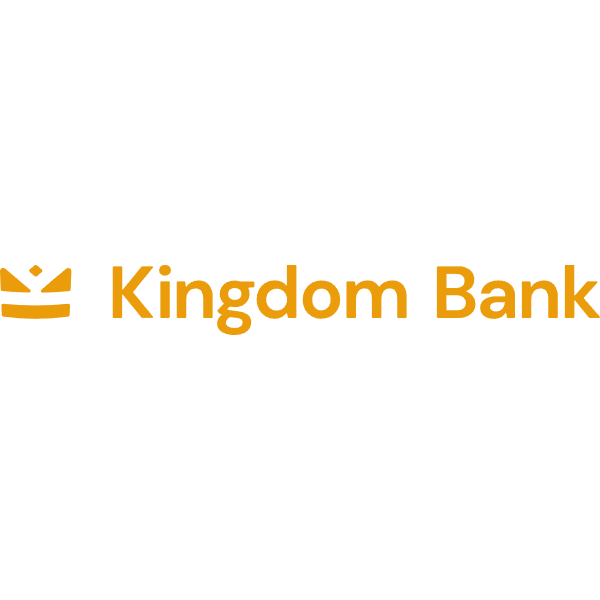Unternehmensprofil
HSB (PT Handal Semesta Berjangka) ist ein in Indonesien gegründeter Devisenmakler mit Hauptsitz in Jakarta. Das Unternehmen bietet hauptsächlich Handelsdienstleistungen für Kunden in Finanzderivaten wie Devisen, Rohstoffe, Indizes und Aktien an. HSB wurde 2018 gegründet und wird von der Indonesian Commodity Futures Trading Regulatory Authority (BAPPEBTI) mit der Zulassungsnummer 001 / BAPPEBTI / SI / 05 / 2018 reguliert. Darüber hinaus ist HSB auch Mitglied der Indonesian Commodity and Derivatives Exchange (ICDX), was seine Einhaltung und sein Engagement für die besten Praktiken der Branche weiter unterstreicht.
Regulatory Information
Die Geschäftstätigkeit von HSB in Indonesien wird von BAPPEBTI streng reguliert. Die Agentur stellt sicher, dass HSB alle relevanten Finanzaufsichtsstandards einhält und bietet ein sicheres und transparentes Handelsumfeld für Händler. Die behördliche Lizenznummer von HSB lautet 001 / BAPPEBTI / SI / 05 / 2018, was bedeutet, dass das Unternehmen alle erforderlichen behördlichen Anforderungen erfüllt und in Bezug auf Handelsinstrumente und Marktoperationen streng überwacht wird.
Trading Products
HSB bietet eine breite Palette von Handelsprodukten an, darunter:
- Forex: umfasst wichtige und exotische Währungspaare wie EUR / USD, GBP / USD, USD / JPY usw.
- Commodities: Bietet Handel mit beliebten Rohstoffen wie Gold, Silber, Öl usw.
- Indizes: Handel mit wichtigen globalen Börsenindizes wie dem S & P 500 Index, dem FTSE 100 Index und dem Nikkei 225 Index.
- Stocks: Bietet Aktienhandel von bekannten Unternehmen, die verschiedene Branchen und Sektoren abdecken.
Trading Software
HSB bietet eine Vielzahl von Handelsplattformen, um die Bedürfnisse verschiedener Trader zu erfüllen:
- MetaTrader 5 (MT5): Dies ist eine leistungsstarke Handelsplattform, die Echtzeit-Marktdaten, erweiterte Chartfunktionen, technische Indikatoren und automatisierte Handelsstrategien unterstützt. Web Trading Platform: Benutzer können sofort über jeden Webbrowser handeln, ohne die Software herunterzuladen.
- Mobile und Tablet App: Unterstützt iOS- und Android-Plattformen, Händler können Konten verwalten und jederzeit und überall handeln.
Einzahlungs- und Auszahlungsmethoden
HSB bietet eine Vielzahl von Einzahlungs- und Auszahlungsmethoden, einschließlich des Handels über große indonesische Banken wie BCA, Mandiri und BNI. Für spezifische Einzahlungs- und Auszahlungsmethoden und deren Gebühren wird empfohlen, sich direkt an das Kundensupport-Team von HSB zu wenden, um die neuesten Informationen zu erhalten.
Customer Support
HSB bietet eine Vielzahl von Kundensupport-Kanälen, darunter:
- Telefonsupport: Händler können sich über + 62-215-0122-288 mit dem Kundensupport-Team von HSB in Verbindung setzen. E-Mail-Support: Händler können per info@hsb.co.id eine E-Mail mit Fragen senden. Live Chat: Benutzer können über den Live-Chat über die offizielle Website von HSB sofortige Hilfe erhalten oder Social-Media-Plattformen.
Kerngeschäft und Dienstleistungen
Das Kerngeschäft von HSB konzentriert sich hauptsächlich auf die folgenden Aspekte:
- Diversifizierte Handelstools: Bietet eine Vielzahl von Handelsprodukten wie Devisen, Rohstoffe, Indizes und Aktien, um die unterschiedlichen Bedürfnisse von Händlern zu erfüllen.
- Flexible Trading Leverage: Bietet Hebelwirkung bis zu 1: 500, die es Händlern ermöglicht, Handelsmöglichkeiten zu maximieren und gleichzeitig Risiken zu kontrollieren.
- Bildungsressourcen: HSB bietet eine Fülle von Bildungsressourcen, einschließlich HSB Academy, Forex Trading-Kurse und Marktforschungsberichte, um Händlern zu helfen, ihre Handelsfähigkeiten und ihr Marktwissen zu verbessern.
Technische Infrastruktur
HSB hat eine fortschrittliche technische Infrastruktur eingeführt, die Händlern ein stabiles, sicheres und reibungsloses Handelserlebnis bietet. Mit der MetaTrader 5-Plattform, der Web-Handelsplattform und den mobilen Apps können Händler jederzeit und überall auf den Markt zugreifen und mit fortschrittlichen Analysetools und Funktionen handeln.
Compliance and Risk Control System
HSB hält sich strikt an die aufsichtsrechtlichen Anforderungen von BAPPEBTI und hat eine Reihe von Risikomanagementmaßnahmen eingeführt, um die Sicherheit der Gelder der Händler und die Transparenz der Transaktionen zu gewährleisten. Das Kundensupport-Team und die Compliance-Abteilung von HSB sind bestrebt, qualitativ hochwertige Dienstleistungen anzubieten, um Probleme zu lösen, auf die Händler während des Handelsprozesses stoßen können.
Marktpositionierung und Wettbewerbsvorteil
HSB hat gewisse Wettbewerbsvorteile auf dem indonesischen Markt, die sich hauptsächlich in den folgenden Aspekten widerspiegeln:
- Regulatory Compliance: HSB hält sich strikt an die regulatorischen Anforderungen von BAPPEBTI, um die Sicherheit und Transparenz des Handelsumfelds zu gewährleisten.
- Diversifizierte Handelstools: Bietet eine breite Palette von Handelsprodukten, um die Bedürfnisse verschiedener Händler zu erfüllen.
- Flexible Trading Leverage: Bis zu 1: 500 Leverage, um Händlern mehr Handelsmöglichkeiten zu bieten.
- strong> Fortgeschrittene Handelsplattform: Bietet MetaTrader 5, eine Web-Handelsplattform und mobile Anwendungen zur Unterstützung der vielfältigen Bedürfnisse von Händlern.
Kundenunterstützung und Empowerment
HSB bietet Händlern professionelle und effiziente Unterstützung in Echtzeit über mehrere Kundenunterstützungskanäle. Darüber hinaus stellt die HSB auch eine Fülle von Bildungsressourcen zur Verfügung, um Händlern zu helfen, ihre Handelsfähigkeiten und Marktkenntnisse zu verbessern, um einen größeren Erfolg auf dem Markt zu erzielen.
Soziale Verantwortung und ESG
Die HSB setzt sich für soziale Verantwortung ein und berücksichtigt bei ihren Geschäftsabläufen Umwelt-, Sozial- und Governance-Faktoren (ESG). Obwohl spezifische Programme zur sozialen Verantwortung und ESG-Strategien in den öffentlichen Informationen nicht detailliert aufgeführt sind, legt die HSB als regulierte Gruppe von Finanzinstituten notwendigerweise einen Schwerpunkt auf soziale Verantwortung und Nachhaltigkeit in ihrer täglichen Arbeit.
Strategische Kooperationsökologie
HSB unterhält eine enge Zusammenarbeit mit lokalen Finanzmarekts und verwandten Institutionen in Indonesien, um die Entwicklung seines Geschäfts zu fördern. Obwohl die spezifischen Partner und strategischen Allianzen in den öffentlichen Informationen nicht detailliert aufgeführt sind, kann erwartet werden, dass HSB seine Handelsprodukte und -dienstleistungen weiter ausbauen und seine Wettbewerbsfähigkeit auf dem Markt durch die Zusammenarbeit mit lokalen Finanzinstituten und Industrien verbessern wird.
Financial Fitness
HSB hat als regulierter Forex-Broker eine gesunde Finanzlage beibehalten. Obwohl die spezifischen Finanzdaten in den öffentlichen Informationen nicht im Detail erwähnt werden, zeigen die aufsichtsrechtliche Lizenz und die Mitgliedschaft von HSB, dass seine Finanzlage strengen aufsichtsrechtlichen Standards entspricht und Händlern ein sicheres und zuverlässiges Handelsumfeld bieten kann.
Future Roadmap
Die zukünftige Roadmap von HSB wird voraussichtlich die folgenden Aspekte umfassen:
- Extended Trading Products: Kontinuierliche Hinzufügung weiterer Handelstools und -märkte, um den sich ändernden Bedürfnissen der Händler gerecht zu werden.
- Enhanced Customer Support: Kontinuierliche Verbesserung der Kundensupport-Services, um eine effizientere Unterstützung und eine freundlichere Benutzererfahrung zu bieten.
- Stärkung der technischen Infrastruktur: Die Investition in die neuesten Technologien und Plattformen stellt sicher, dass Trader können die besten Handelserfahrungen machen.
- Erfüllung sozialer Verantwortung: Kontinuierliche Beachtung und Erfüllung sozialer Verantwortung, die das Erreichen der Ziele der nachhaltigen Entwicklung und der ESG vorantreibt.
Zusammenfassend lässt sich sagen, dass HSB als registrierter und regulierter Forex-Broker in Indonesien eine vielfältige Palette von Handelsprodukten, fortschrittliche Handelsplattformen und flexible Handelshebelwirkung bietet. Obwohl sie hauptsächlich auf den indonesischen Markt ausgerichtet ist, sind ihr Potenzial und ihre Wettbewerbsfähigkeit auf dem Weltmarkt nicht zu übersehen.
- Enhanced Customer Support: Kontinuierliche Verbesserung der Kundensupport-Services, um eine effizientere Unterstützung und eine freundlichere Benutzererfahrung zu bieten.
- Diversifizierte Handelstools: Bietet eine breite Palette von Handelsprodukten, um die Bedürfnisse verschiedener Händler zu erfüllen.
- Flexible Trading Leverage: Bietet Hebelwirkung bis zu 1: 500, die es Händlern ermöglicht, Handelsmöglichkeiten zu maximieren und gleichzeitig Risiken zu kontrollieren.
- Diversifizierte Handelstools: Bietet eine Vielzahl von Handelsprodukten wie Devisen, Rohstoffe, Indizes und Aktien, um die unterschiedlichen Bedürfnisse von Händlern zu erfüllen.
- Mobile und Tablet App: Unterstützt iOS- und Android-Plattformen, Händler können Konten verwalten und jederzeit und überall handeln.
- Commodities: Bietet Handel mit beliebten Rohstoffen wie Gold, Silber, Öl usw.



